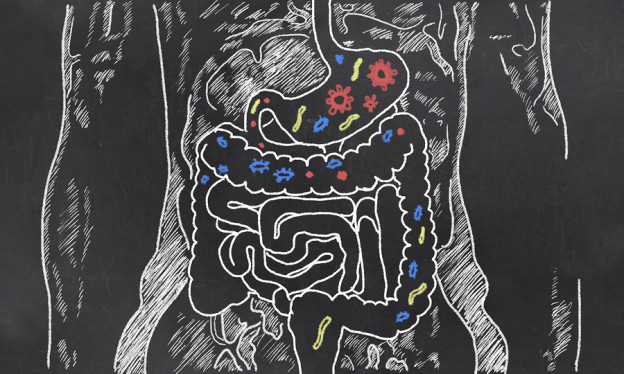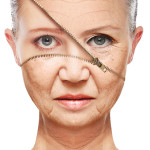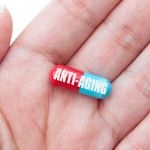By David Blyweiss, M.D., Advanced Natural Wellness
November 18, 2015
- How to fast without starving
- Trigger this ancient cellular cleansing mechanism
- Then kick it into overdrive
If there’s one thing that can strike terror into the hearts of food-lovers, it’s the word “fasting.” Nobody really wants to do it. But a surprising number of people ask me how it should be done.
Well, here’s a surprise. You don’t have go on a juice diet for three to seven days to get the anti-aging benefits of a fast. You don’t even have to starve yourself or cut calories. And it’s something you can easily do.
Let me explain…
The first meal you eat each day is probably breakfast, which literally means “break the fast.” But if you had a snack or ate dinner shortly before you went to sleep the night before, you’re not really breaking the fast. That’s because you never had one to start with.
MD Exposes the Hidden Danger to Your Eyes

When your eyesight starts to fail, it's a real problem. Suddenly you can't go to the grocery store... you can't get to the doctor if you have an emergency... you can't meet your friends for dinner…
Your "regular" doctor doesn't have time to keep up with the latest research. And the same goes for eye doctors. They go to school to learn how to fit you for glasses and contacts, but have no way of preventing the damage and loss of eyesight that threatens your freedom and independence.
Let me show you something that explains a LOT about how your eyes work.
In my FREE Special Report, I'll show you a HUGE, untapped resource for your eyes that safely and naturally restores clear, effortless eyesight.
Click here to get started...
That’s the problem with having 24/7 access to food. Whenever your stomach grumbles, all you have to do is walk 10 or 15 feet to your fridge. This keeps your digestive system on the clock day-in, day-out and year-round without a break.
So how can you give your gut a little time off? With a daily intermittent fast.
The concept is simple. Designate a window of six to eight hours each day to enjoy regular meals. Then fast for the remaining 16 to 18 hours.
During this period, your body will automatically trigger several processes that can help optimize your health and slow down the aging process…even though you aren’t really eating any fewer calories than normal.
First, your body will burn the sugar stored in your liver as glycogen. This is great if you need to drop a little weight. That’s because the less glycogen you have in your body, the more fat you’ll burn – both at rest and when exercising.
It’s also helpful when it comes to improving insulin action and blood sugar.
Second, and more importantly, these mini-fasts trigger an ancient mechanism called autophagy. I’ll bet you’re wondering what that means.
The World's Quickest Solution for Ending Prostate and Urinary Misery
This has recently been revealed to be one of the only real breakthroughs in prostate health.
The seeds of a strange fruit (sometimes called "Chinese Apples") hold powerful phytonutrients that are a revolution in prostate health.
In fact, UCLA and Veterans Administration research have now proved this to be true.
Not only that, but it may be the worlds quickest solution for ending prostate misery.
Simply stated, these phytonutrients represent a huge step beyond beta sitosterol, saw palmetto, and other phytosterols alone.
Simply click HERE if you want to have fast prostate relief...restful, uninterrupted sleep...no more constant "urges to go"...enhanced virility...and optimal prostate support for life.
Autophagy is basically an internal cleansing system for your cells. Misfolded proteins, damaged mitochondria and other cellular waste are broken down and eaten by your own body. This process makes your cells work more efficiently. (Autophagy literally means ‘to eat oneself’.)
It also helps clear your body of intracellular bacteria and pathogens. So it’s a huge boost to your immune system and helps protect your body from infections, autoimmune disorders and inflammatory diseases.
Now, this is very significant when it comes to anti-aging. That’s because aging begins when cellular damage exceeds the rate of repair and turnover.
When this happens, cellular waist starts building up. And eventually it will affect normal cell function. In fact, insufficient autophagy even has links to neurological disorders, like Alzheimer’s and Huntington’s.
Taking part in daily intermittent fasting is a great way to kick start autophagy and maximize your health on a cellular level. Not only will you protect your health, you’ll feel better, have more energy and raise your fat burning potential.
And you don’t have to skip meals to do it. You just need to choose a window between six and eight hours a day to eat all the healthy food you want. Then, during the remaining hours, stick with no calorie beverages.
Plus, there’s an easy way to boost things along. Resveratrol, the antioxidant found in grapes and red wine, turns on your Sirt1 gene. This is your “anti-aging” gene. It plays a role in the regulation of autophagy and also protects your body from disease by revving up your mitochondria.
And if you take resveratrol with its highly potent cousin, pterostilbene, you can amplify your results. That’s because pterostilbene is a whopping four times more bioavailable than resveratrol. Get at least 50 mg. of resveratrol and 25 mg. of pterostilbene each day.
I just have one caveat: If you’re hypoglycemic, you may need to work on your diet and stabilize your blood sugar before trying intermittent fasting. This means cutting out the carbs and sticking with a healthy balance of fats, proteins and plant-sourced foods.
However, you can still gain some health benefits by supplementing with resveratrol and pterostilbene.
Sources:
Halberg N, et al. Effect of intermittent fasting and refeeding on insulin action in healthy men. J Appl Physiol (1985). 2005 Dec;99(6):2128-36.
Levine B, et al. Autophagy in immunity and inflammation. Nature. 2011 Jan 20;469(7330):323-35.
Funderburk SF, et al. Cell “Self-Eating” (Autophagy) Mechanism in Alzheimer’s Disease. Mt Sinai J Med. 2010 Jan; 77(1): 59–68.
Ou X, et al. SIRT1 positively regulates autophagy and mitochondria function in embryonic stem cells under oxidative stress. Stem Cells. 2014 May;32(5):1183-94







